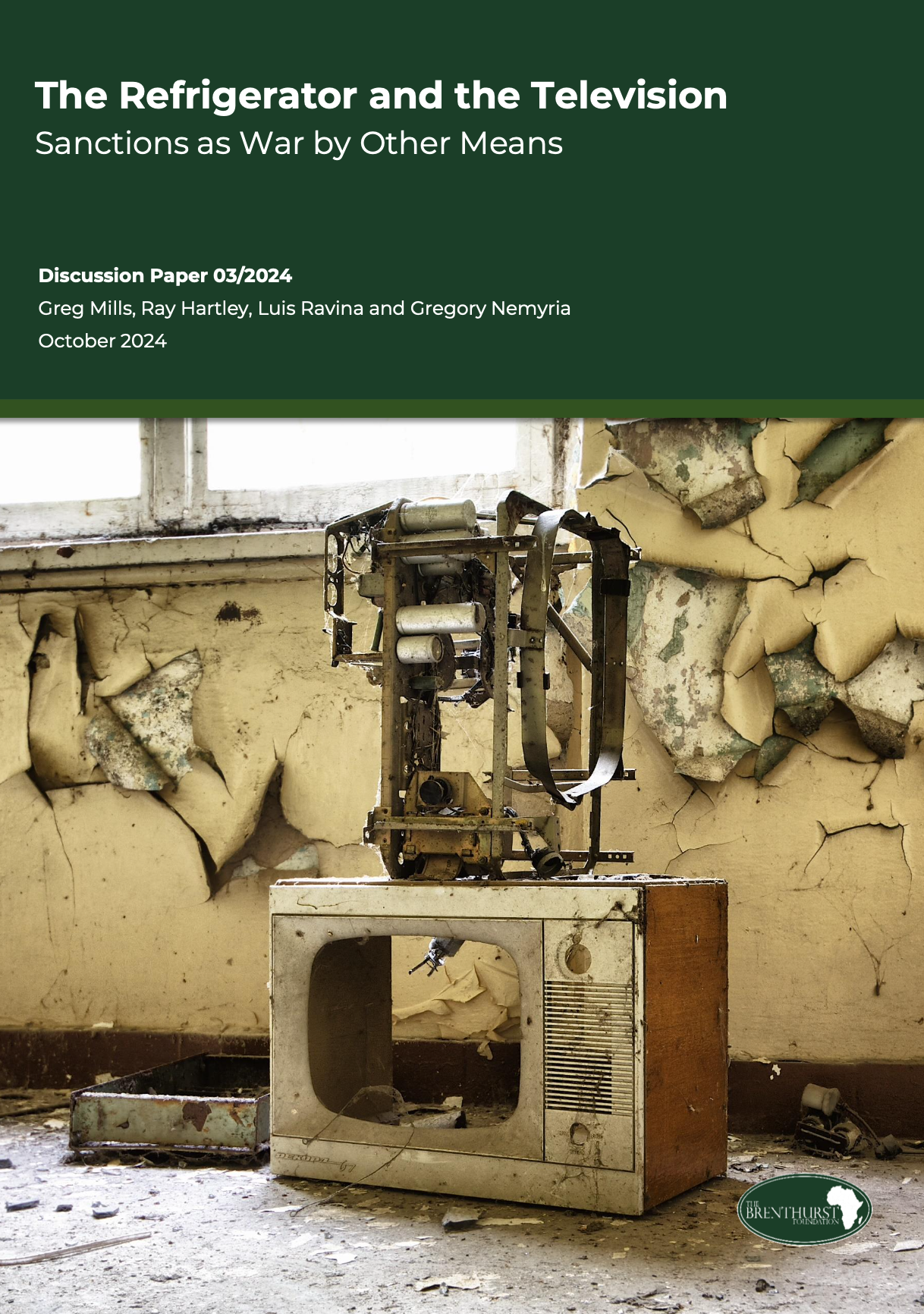Publications
The Refrigerator and the Television: Sanctions as War by Other Means

Former Director, The Brenthurst Foundation

Former Research Director, The Brenthurst Foundation

Director of the Navarra Center for International Development
First Deputy Chairman of the Foreign Affairs Committee
This highlights one of several problems with sanctions. These elites are usually uninterested in popular welfare, explaining their attitude towards democracy and its wider benefits. They are more concerned about maintaining themselves in power and funding their lifestyle whatever the cost to their people.
But there are ways and means, direct and indirect, to raise the costs of such choices. Some of these new means have been developed following Russia’s invasion of Ukraine.
The Kyiv Scientific Research Institute of Forensic Expertise investigates the engineering make- up and components of the bombs, drones and missiles used against Ukraine. They compile dossiers of information on the source of silicon chips and other hardware, in which many blue-chip companies, including some of Western origin, are listed. The Institute’s researchers, including former military engineers, have identified an astounding array of parts from across the globe, despite sanctions on Russia's technology imports.
A Ukrainian government website displays a database of 3,000 components from nearly 400 foreign manufacturers in 32 countries found in weapons used by Russia in the war against Ukraine. As the saying goes, business seldom found a government it did not like.
The courtyard of the Kyiv Institute is stacked with dozens of missiles, shells and drones, mostly Russian, others North Korean and Iranian in origin. In metal-walled portacabins surrounding the area, experts pore over wreckage, with written and pictorial guides on the walls assisting them in their detective work. Helicopter drones use Austrian-made engines; Iranian Shahed loitering munitions use Tillotson carburettors engraved with ‘Made in Ireland’; the Russian Kartograf reconnaissance drone yields Japanese camera lenses.
This forensic world is changing. The capabilities do not end with identifying the type of hardware, but also their site of its production. It may even be possible to determine on which day, by whom and on which production line these weapons were built. Should they have been involved in the unlawful killing of civilians, or the destruction of civilian infrastructure, this information could form part of a future case against the manufacturers and their personnel.
As the world changes, so does the means whereby war is fought and countered. As Clausewitz would have it, war is but one tool of state political power; economic means, culture, information, and even sports all contribute. In a drawn-out conventional war involving huge amounts of materiel, access to finance and high-tech componentry is crucial, as are the means of countering this.
Economic sanctions are a tool of coercion on the softer end of a spectrum that starts with diplomatic isolation and voluntary boycotts and ends with physical blockades. It can even include softer measures such as a more careful calibration of aid. While many – usually those against whom they are applied – are quick to claim that sanctions don’t work, history suggests that, at least in some instances, with the right amount of political will, they can. But an over- reliance on sanctions is likely to deliver little, save a measure of self-satisfaction, and a focus on this alone only obscure other non-violent possibilities for encouraging and, in fact, facilitating regime behaviour change.



